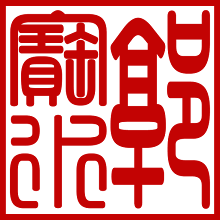This was the Chinese
language most important part, or the part that makes it be different with the
other language.
Ini nih yang buat
bahasa mandarin lain dari yang lain, bahkan menjadi bagian terpenting.
这就是汉语重要部分之一,而且使它成特别的语言。
Nada satu (First
tones) 第一声/阴平【dì yī shēng / yīn píng】
《5 5》
Nada dua (second
tones) 第二声/阳平【dì èr shēng / yáng píng】 《3 5》
Nada netral (neutral
tones) 轻声【qīng shēng】
This tones is a
special tones of the fourth tones, usually is in the behind (second letter) and
no sign (好吧 = hǎo ba). When read we use a very short and
soft voice.
Nada ini adalah nada
khusus dari nada empat dan biasanya dibelakang (huruf kedua) dan tidak ada
simbolnya (好吧 = hǎo ba). Saat membaca hrs menggunakan nada
yg lembut dan sangat pendek.
轻声一般情况下是在后面的一个字而不标声调(好吧 = hǎo ba)。读时音长变短,音强变弱。Which letter do we must put this tones? Almost all of the word is according to sequence of the vowel. Except only one vowel, we will not need to choose, haha
Di huruf mana kita
harus meletakkan nada ini? Hampir disemua kata diletakkan berdasarkan urutan
huruf hidupnya. Kalau huruf hidupnya cuman satu, g perlu pilih deh, hehe
在哪儿放声调呢?大多数是按元音顺序放的。除非只有一个元音,呵呵
Contoh (example) 例子:
Urutan (sequence) 顺序【shùn
xǜ】:a o e i u ü
qiang => qiang zou => zou qie => qie shuo =>
shuo
only if u and i was stand
together, the tones always at the last vowel !
khusus jika u dan i digunakan
bersama, maka nada akan selalu berada di huruf hidup yang terakhir !
只有 u 和 i 放在一起,我们才把声调放在最后的元音!
Examples:
jiu => jiu zui
= zui





No comments:
Post a Comment
Just feel free to comment or ask anything my friend.
help us to improve this blog for the benefit of anyone who want to learn Chinese.
i`ll always try the best to answer or reply your comment as soon as possible ^.^